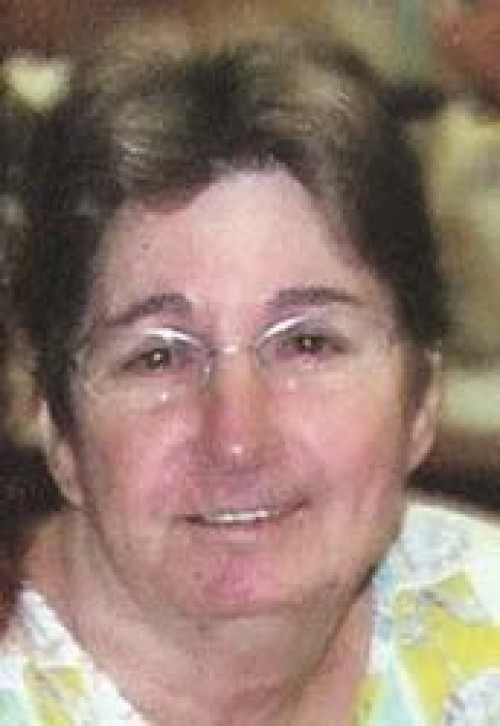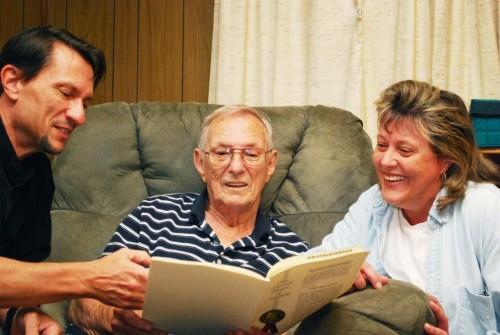Nov. 11
November 11, 2009
Ms. Mae Ella Marie Carlos
November 13, 2009Joseph Boudreaux had already seen two of his tool designs patented by other companies, and eventually sold in hardware stores across the country. So, when he came up with an idea for a new kind of electric engine for a car, his wife, Jeanne, said, “Not again,” and told her husband to take their savings and run with his idea. The entire Boudreaux family – Joseph, his wife, and his children Karen, Mark and Barry – began the long process of patenting the patriarch’s idea. After 5 years and struggles with patent lawyers and funding, the Boudreaux family was finally granted their patent on Oct. 20. Sadly, Joseph’s wife Jeanette did not see the journey to its end. She passed away in June of 2007.
Boudreaux’s new engine uses a 2-cylinder fuel powered engine to power a generator. The generator charges a set of batteries, which in turn, power an electric engine to propel a car.
Boudreaux says the engine is super-efficient; more so than a hybrid, because it never uses the engine to drive the car and operates on a 2-cylinder engine rather than a 4- or 6-cylinder engine. It also doesn’t have to be plugged in at night like prospective electric vehicles, which could be difficult to recharge on the go in smaller areas like his hometown of Houma.
The idea could also easily be converted to run on biodiesel or other fuels, and could be used to power cars, boats, trains and more.
The engine powering the generator runs at a constant speed, so fuel consumption is dependent on the amount of time the engine is running, not how far the car travels, according to Boudreaux.
Boudreaux estimates that the generator would use about one gallon of fuel per hour and could travel at roughly 70 miles per hour. Therefore, a 10-hour trip of 700 miles would burn just 10 gallons of gas. A traditional car that gets 20 miles to the gallon would use 35 gallons.
Joseph Boudreaux is an unassuming retired Bell South technician of 76 years. He always stays humble about his accomplishments.
“This was really a family affair,” said Boudreaux, but his children disagree.
“The engine idea was all him. I was just moral support,” says his son Mark.
“I just helped him with the Internet. He won’t even get an e-mail address,” said his daughter Karen.
Mark is quick to note that this isn’t the first time his dad has come up with a useful new idea. Aside from a wire-fishing tool and a wire splitter Joseph developed while at Bell South, Mark points out that his father developed a homemade stud finder out of a compass sometime in the late ’60s.
“It’s incredible,” said Mark. “He developed this idea 40 years ago, and now they’re in every hardware store.”
Joseph also drew over 100 detailed pictures of buildings and places in Houma during the ’40s and ’50s entirely from memory, which were displayed in the public library.
The idea for his engine came to Joseph on a trip to New Orleans with his wife in the year 2000. While sitting in a traffic jam caused by a car wreck, Joseph saw people getting out of a streetcar and said to himself, “Why can’t somebody make a car that runs like a streetcar.”
Later that night, he had a dream about how to do just that. He woke up early in the morning and started sketching on a pad of paper.
From the original sketches, and with much pushing from his wife, Boudreaux started to ask around about his idea.
“A lot of people said it would never work. There were a lot of naysayers back then,” said Boudreaux.
Nonetheless, Boudreaux took his idea to his son Barry, a Nissan mechanic, as well as mechanics with Ford and Trapp Chevrolet. He also showed his idea to a local generator expert.
“They all said, ‘No doubt. This’ll work,'” Boudreaux said.
Boudreaux then began drafting schematics for his invention and hired a patent lawyer in New Orleans.
Joseph estimates that he’s invested between $18,000 and $20,000 to get his patent. But when the patent attorney became too expensive, and a patent examiner told them their lawyer had power of attorney for the invention, the Boudreauxs decided to finish the process on their own. Mark took over, but insists he only helped with the wording.
Once he received patent pending status, Joseph began submitting his idea to automakers, which rejected the idea only because of the patent-pending process. He even sent a letter to President George W. Bush in 2005, only to get a form letter back from a special assistant.
“The president was making speeches about trying to conserve fuel and everything at the time, and they sent me back a form letter. That was pretty disheartening,” Boudreaux said.
The big day finally arrived earlier this month, when a large envelope arrived in the mail from the U.S. Patent Office.
“Mark was scared to open it. He made me do it,” Karen said. “We’re all so proud of him. We just wish Mom was here to see this.”
Now, with their patent letter in hand, the Boudreauxs are making another push to get Joseph’s engine some attention. They’re pitching the idea to universities, automakers, oil companies and even the Sante Fe Railway Company trying to stir up some interest in the engine. The idea has already seen interest from an invention company in San Francisco, and an aftermarket auto garage in Chicago has offered to build a prototype if the Boudreauxs can fund it.
Building a prototype would be prohibitively expensive, costing up to $200,000. They’re hoping someone will invest in the engine and build it.
In spite of his age, Joseph hasn’t slowed down. He’s got two more patent ideas up his sleeve.
“I’d like to see my grandchildren not have to worry about their future and college. And that we all can retire – myself again,” Joseph said.
Joseph Boudreaux, center, his son Mark and daughter Karen, look over Joseph’s engine patent. Joseph’s new engine is super-efficient because it never uses the engine to drive the car and operates on a 2-cylinder engine rather than 4- or 6-cylinder engine. * Photo by BRETT SCHWEINBERG











